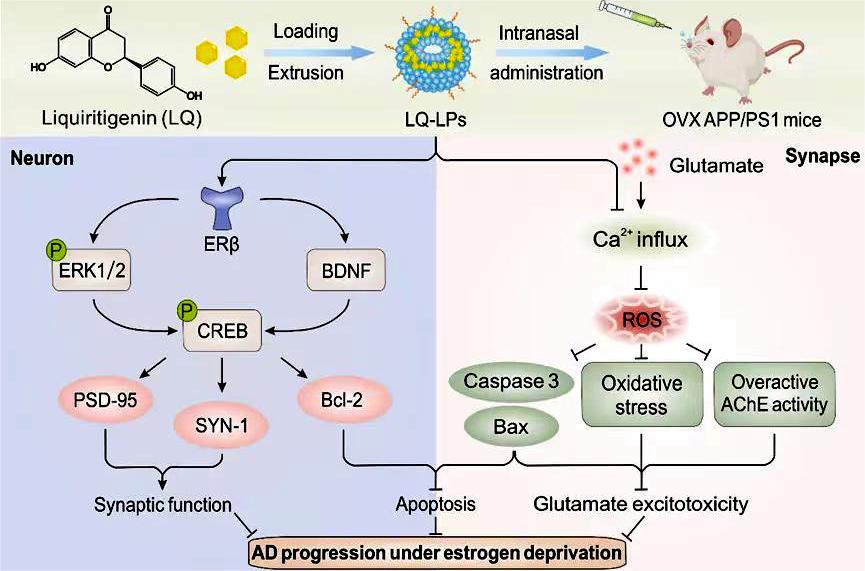Chinese Researchers Give Hope to Women with Alzheimer's
By YIN Wei

(PHOTO: TJU)
Researchers from Tianjin institutions have achieved a breakthrough for personalized treatment of Alzheimer's disease in women, creating a tailored nanomedicine designed specifically for women.
A paper on their groundbreaking work has been published in the international journal of nanoscience and technology Nano Today.
Alzheimer's is a widespread neurodegenerative disorder marked by a gradual deterioration of memory and cognitive abilities. Globally, millions grapple with this condition, with noticeable gender disparities, as it disproportionately affects women.
Research suggests that the decline in estrogen levels following menopause significantly contributes to women's heightened vulnerability to the disease. Estrogen protects the female central nervous system, fosters neuronal growth, and upholds brain equilibrium. The absence of estrogen post-menopause can trigger neurodegenerative changes and cognitive decline.
Professor Chang Jin from the School of Life Sciences at Tianjin University (TJU), in collaboration with associate researcher Dou Yan from the Tianjin Medical University affiliated General Hospital, developed a pioneering multi-functional nanomedicine utilizing plant-derived estrogen glycyrrhetinic acid for targeted treatment of Alzheimer's in postmenopausal women.
This innovative nanomedicine activates neural protective signaling pathways mediated by specific estrogen receptors, thereby improving the cognitive functions affected by estrogen deficiency.
“The pathogenesis of Alzheimer's disease is multifaceted,” Professor Chang said. “To address this complexity, we've developed a comprehensive series of nine nanomedicines tailored for its treatment… Moving forward, our research will prioritize the development of more refined drug delivery methods aimed at maximizing therapeutic efficacy.”
Animal studies have illustrated that nanomedicine enhances anti-apoptotic signals, reduces neuronal oxidative damage, and mitigates cholinergic dysfunction in the ovariectomized Alzheimer's mice model. Through efficient brain delivery via nasal administration, promising outcomes have been observed in restoring cognitive functions in these experimental mice. This research presents a novel therapeutic approach tailored for female-specific Alzheimer's disease, marking a significant step in personalized patient care.
Professor Chang said the research has also led to the publication of eight “high-impact” academic papers, four authorized national invention patents, and the disclosure of an international patent.
“Additionally, we're engaging in discussions with pharmaceutical companies to identify even more precise nanomedicines for preclinical studies,” Professor Chang added.


